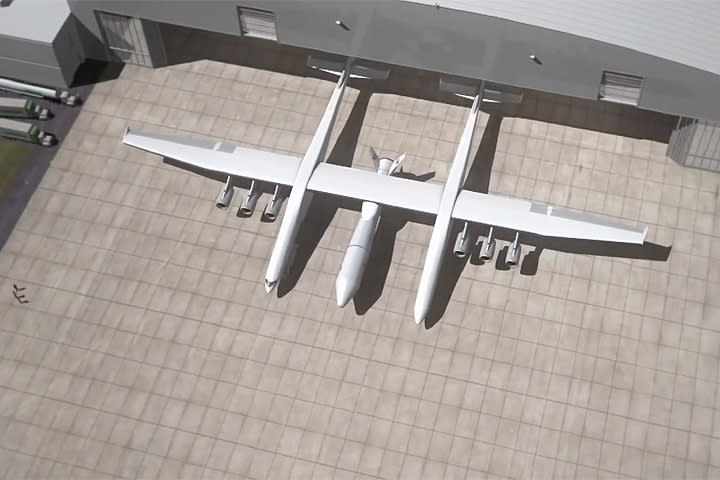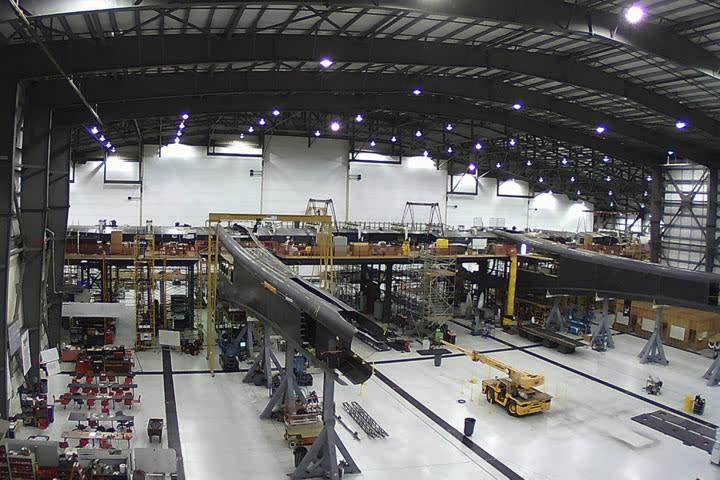Over the years, man has built some truly colossal airplanes. But in 2016, an even larger aircraft is expected to take flight, and when completed, it will officially be the largest plane in the world. That massive aircraft is known as the Stratolaunch.
The Stratolaunch is currently in production at California’s Mojave Air and Space Port. Aerospace firm Scaled Composites has headed-up development of the mammoth aircraft, and befitting such a sizable plane, the technical details are jaw-dropping. Stratolaunch, nicknamed “Roc” after the mythical bird of prey, features two fuselages, six Pratt & Whitney jet engines, 28 landing gear wheels, and a whopping 385 foot wingspan.
“If you were to put the center of this airplane on a football field,” mentions Scaled Composites president Kevin Mickey in a KGET interview, “its wingtips would extend beyond the goalposts by about 15 feet on each side.”
Those dimensions make it 65 feet wider than the legendary “Spruce Goose” H-4 Hercules, 95 feet wider than the spaceship-carrying Soviet Antonov An-225, and 123 feet wider than the modern Airbus A380.
In fact, it is being constructed using pieces of two already quite large planes–a pair of disused Boeing 747s. This then, is no small endeavor, and it almost comes as no surprise to know the brain behind it is none other than Microsoft co-founder Paul Allen.
But its creation isn’t a means of staking a claim as the largest plane in the world, that’s merely a side effect. “Roc” is aiming to change the way satellites are launched into space.
The Stratolaunch is designed to carry a three-stage rocket (equipped with a satellite) between its two fuselages. Upon reaching the correct altitude, the rocket will detach, blast off into space, and later release the satellite. The combined weight of “Roc” plus the rocket is estimated to be 1.3 million pounds.
Why build the largest plane in the world to put a satellite into space? A setup like the Stratolaunch can allow flexible satellite launches during a range of weather conditions and from anywhere in the world…with a runway big enough, that is. Those are two things a stationary launch pad can’t do. Initial flight testing is anticipated to begin in 2016, with missions expected to go underway in 2018.
(Zach Doell - Boldride)


1 comment:
To nitpick:
The company building this giant is Stratolaunch.
The giant itself is known as Stratolauncher ....
Post a Comment